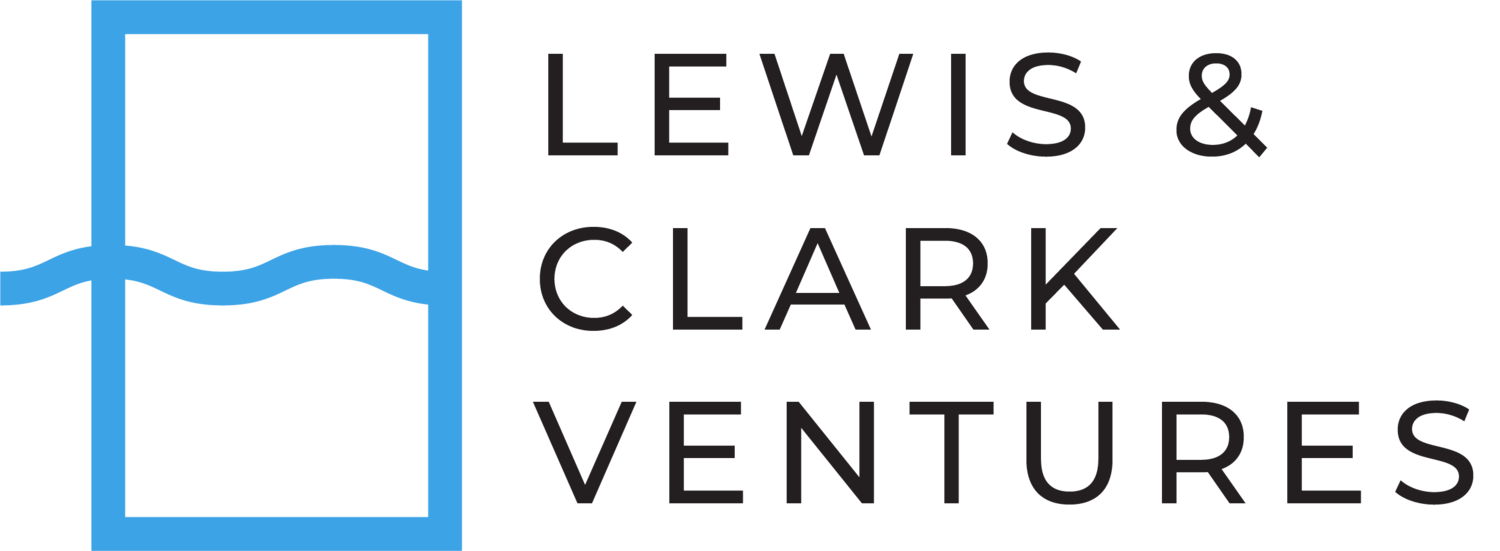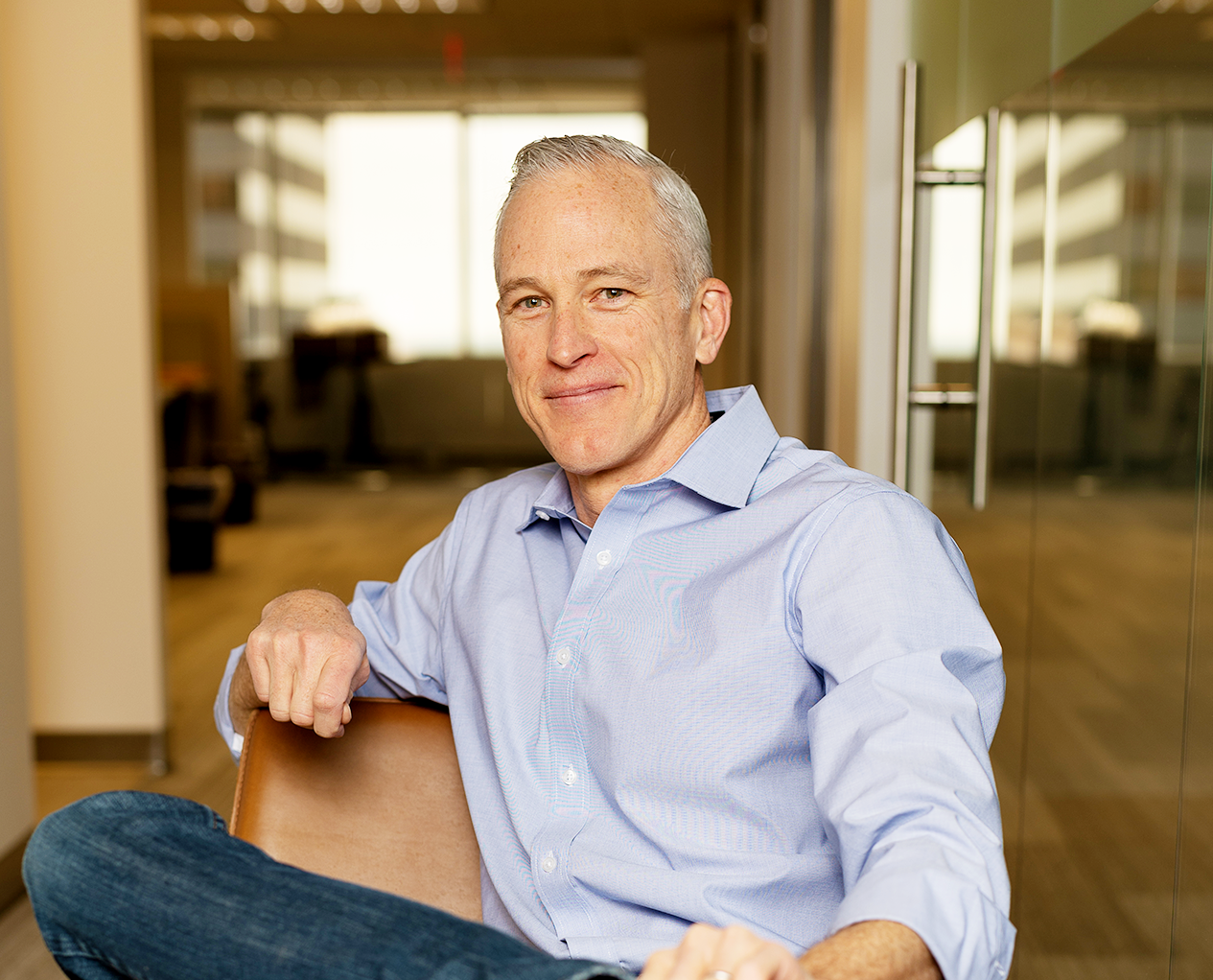Brian Hopcraft
General Partner & Venture Partner
“Starting a company will change your life in ways that you can’t imagine, so I always encourage founders to make the leap. You’ll look back and realize what an amazing inflection point it was in your life.”
Brian is an entrepreneur and technology leader with more than 20 years of experience leading both established technology companies and early-stage organizations.
Prior to joining Lewis & Clark Ventures, Brian was SVP of Operations at Answers. He was also CEO of Sendouts, which was acquired by Vista Equity Partners and integrated with Vista portfolio company, Bullhorn. Earlier in his career, he founded Simplified Workforce Solutions and led the company through an acquisition by 360Commerce (later acquired by Oracle).
Company Affiliations
Amper
Big Squid (acquired)
Kaizen
ObservIQ
OneSpace (acquired)
Territory Foods
Waldo
Getting Started.
I've always been drawn to early-stage companies. I was lucky enough to join a software company in the early '90s in Chicago and learned a lot at that company. We were bootstrapped, and then later on, venture-funded. We had a lot of ups and downs. It was a great foundational experience with a good outcome when we were acquired by SAP. It was at that point that I fell in love with startups and technology.
Imposter Syndrome.
When I was building my first company, I got in front of a former CEO of Burger King. I remember that conversation to this day. He talked about how, even though he was the CEO of Burger King — this big public company — he felt like he was a fraud. I had instant empathy because that's how I felt then — we both had the same feelings in different places. It's natural for everyone to have that imposter complex where you feel like you don't deserve it, or you feel insecure. I learned that if someone with that pedigree had it, everyone has it — it's just something you have to deal with, and that's ok.
Start Small | Talk To People.
You gain confidence in life by taking initiative. It's how you become 'good' at anything. Get out of your comfort zone. Once you take initiative and experience a bit of success, it gets easier. Go out and start talking to people.
The reality is people want to help you as an entrepreneur. Through talking to people you're going to learn so much. Prospective customers, people you admire who are where you want to be are both great places to start. The feedback you get will help you build confidence in what you're doing — and sometimes it’ll invalidate your idea, which is equally as important.
Strengths & Weaknesses.
You’re a combination of the five people you spend the most time with. I think there's some truth in that. You're going to share characteristics of those people. There's a balance you have to get right. When starting my own company, we succeeded because I was able to find some really good people who took initiative and had opinions. When you find those people, they can be game-changers.
The people that do well, are the people that are good at understanding their skills, and what they are missing. The more you understand what your strengths and weaknesses are, and you get complimentary people around you that you trust inherently, that's when great things start to happen.
Finding The Right Partner.
Founders should always do their homework on a potential investor, just like the investor is doing on you. One of the best things you can do is talk to other founders they've worked with, and ask the tough questions. Get a sense of how they handle good times, and how they react during challenging times, how engaged they are, etc. This is really important to understand upfront because you want to find a VC who will be a true partner for the long haul, truly accelerating your success.
Investing.
Typically when we invest, it's pretty early on for the company. We're looking for founders working on exciting things, with a vision and values we support. However, we're also looking at the team they've built. One of the most important aspects of being a valuable partner is our ability to be an impartial guide and help the founders understand team dynamics and challenges.
Post Investment.
We cater our value add to the company's individual needs. Often our time is spent on go-to-market as they've generally had some early traction. We also dedicate a lot of time to working with the CEO to identify their biggest challenges and opportunities. Whether we encourage them to think bigger or bring their focus back to what needs to happen now are both important. It's crucial that there's alignment in both thinking big, and getting the house in order. We like to build a cadence and set a foundation that we can build off of. Building a company can take five to ten years, so we think about our value on that horizon.
Middle Of The Country.
When you think about entrepreneurs in the middle of the country — especially first-time founders — typically you have fewer resources. Who you partner with is extremely important because you just don’t have all the money in the world to spend on everything. You need the right partners.
Beliefs.
One of the things that I do operate on and believe more than most is that people create their own reality. An entrepreneur is a great example of that. They have a vision, and it's something that doesn't exist today. You're making that reality happen, and you do it consciously. There's so much power in that.
Building Something Big.
The best entrepreneurs want to build something big — they don't go into it wanting to sell quickly. They think what they are doing is changing the world, and they are excited about it. They see an opportunity to make something big and they have an opinion about it.
Part of our job is to help founders realize they may be a variety of paths to get where they want to go while making sure they've got the right team, enough time, and enough money to do it. The path to success isn't a straight line. We all think it is. We all have a plan, but it rarely ever works out that way. Sometimes you go forward, and back, and that's alright. That's the reality. We partner to help founders through that.
Long Horizons.
There's a pragmatic approach in the middle of the country where you take the money that you need, prove the next steps, and build more value. Founders usually should want to raise the minimum amount that they need for the next step because that’s always in everyone's interest.
Over time, we help our founders put the structure in place — KPI reporting, team, all those things that help you optimize time and money. Then we help them think on the other side of it — challenging them to think bigger and strategize how to achieve their vision faster.
Value Add.
When I talk with entrepreneurs about what they are going through, and how we'll add value as a partner, I often think about it in terms of obstacles. As a founder, you have no idea what you're going to face. When an obstacle arises, I'm hopeful that either I've experienced those challenges firsthand, or someone from our team or board has. Either way, we'll be able to provide guidance — but some of those challenges will be new for everyone. We'll figure it out together.
At the end of the day, that's why entrepreneurs do this. It's fun to try to achieve something big.


